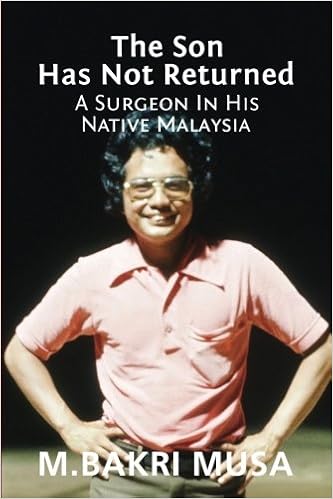M. Bakri Musa
Seeing Malaysia My Way
About Me

- Name: M. Bakri Musa
- Location: Morgan Hill, California, United States
Malaysian-born Bakri Musa writes frequently on issues affecting his native land. His essays have appeared in the Far Eastern Economic Review, Asiaweek, International Herald Tribune, Education Quarterly, SIngapore's Straits Times, and The New Straits Times. His commentary has aired on National Public Radio's Marketplace. His regular column Seeing It My Way appears in Malaysiakini. Bakri is also a regular contributor to th eSun (Malaysia). He has previously written "The Malay Dilemma Revisited: Race Dynamics in Modern Malaysia" as well as "Malaysia in the Era of Globalization," "An Education System Worthy of Malaysia," "Seeing Malaysia My Way," and "With Love, From Malaysia." Bakri's day job (and frequently night time too!) is as a surgeon in private practice in Silicon Valley, California. He and his wife Karen live on a ranch in Morgan Hill. This website is updated twice a week on Sundays and Wednesdays at 5 PM California time.




0 Comments:
Post a Comment
<< Home